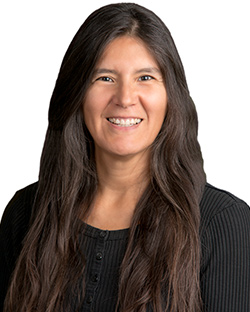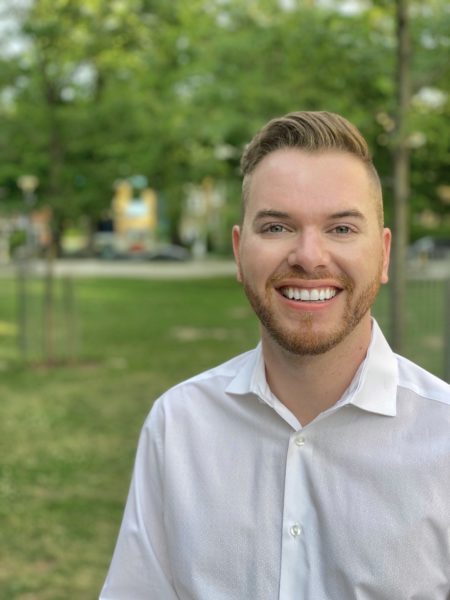TORONTO, Sept. 22, 2021 – York University is launching a new Centre for Indigenous Knowledges and Languages (CIKL) which will host Indigenous and non-Indigenous researchers and students engaged in Indigenous research.
That research could focus on traditional and contemporary knowledges as care-taken, shared and created by Indigenous scholars at the University and from Indigenous knowledge holders in the community.
The goal of the centre is to facilitate knowledge production and dissemination that re-centres Indigenous knowledges, languages, practices and ways of being.
 Associate Professor Deborah McGregor, Canada Research Chair in Indigenous Environmental Justice and director of the Indigenous Environmental Justice Project is the inaugural director of the organized research unit. She is cross appointed to Osgoode Hall Law School and the Faculty of Environmental and Urban Change, and is Anishinaabe from Whitefish River First Nation, Birch Island, Ont. Her research focuses on Indigenous knowledge systems and their applications in water and environmental governance, environmental and climate justice, and sustainable self-determined futures.
Associate Professor Deborah McGregor, Canada Research Chair in Indigenous Environmental Justice and director of the Indigenous Environmental Justice Project is the inaugural director of the organized research unit. She is cross appointed to Osgoode Hall Law School and the Faculty of Environmental and Urban Change, and is Anishinaabe from Whitefish River First Nation, Birch Island, Ont. Her research focuses on Indigenous knowledge systems and their applications in water and environmental governance, environmental and climate justice, and sustainable self-determined futures.
“The Centre for Indigenous Knowledges and Languages offers a generative space within and beyond York University to advance Indigenous scholarship, research theories, methodologies and practices that supports a keen understanding of the goals and aspirations of Indigenous Peoples,” says McGregor.
“CIKL will foster collaborations and partnerships with Indigenous Peoples and others that create ethical space for dialogue on how research relationships can be envisioned, negotiated and practised in support of Indigenous futurities. Creating this ethical space in collaboration with Indigenous Peoples and our colleagues across the University also creates opportunities for critical dialogue, reflection and change to take place in addressing some of the world’s most pressing challenges.”
 Faculty of Health Assistant Professor Sean Hillier, York Research Chair in Indigenous Health Policy & One Health, is CIKL’s associate director. He is a queer Mi’kmaw scholar from the Qalipu First Nation.
Faculty of Health Assistant Professor Sean Hillier, York Research Chair in Indigenous Health Policy & One Health, is CIKL’s associate director. He is a queer Mi’kmaw scholar from the Qalipu First Nation.
“Having dedicated Indigenous research resources and space, as offered by the new CIKL, which is run by and for Indigenous Peoples on campus, is a critical first step,” says Hillier. “This centre will assist York in becoming a research-intensive institution and serves the principles of the Indigenous Framework and University Academic Plan.”
-30-
York University is a modern, multi-campus, urban university located in Toronto, Ontario. Backed by a diverse group of students, faculty, staff, alumni and partners, we bring a uniquely global perspective to help solve societal challenges, drive positive change and prepare our students for success. York's fully bilingual Glendon Campus is home to Southern Ontario's Centre of Excellence for French Language and Bilingual Postsecondary Education. York’s campuses in Costa Rica and India offer students exceptional transnational learning opportunities and innovative programs. Together, we can make things right for our communities, our planet, and our future.
Media Contact:
Sandra McLean, York University Media Relations, 416-272-6317, sandramc@yorku.ca

